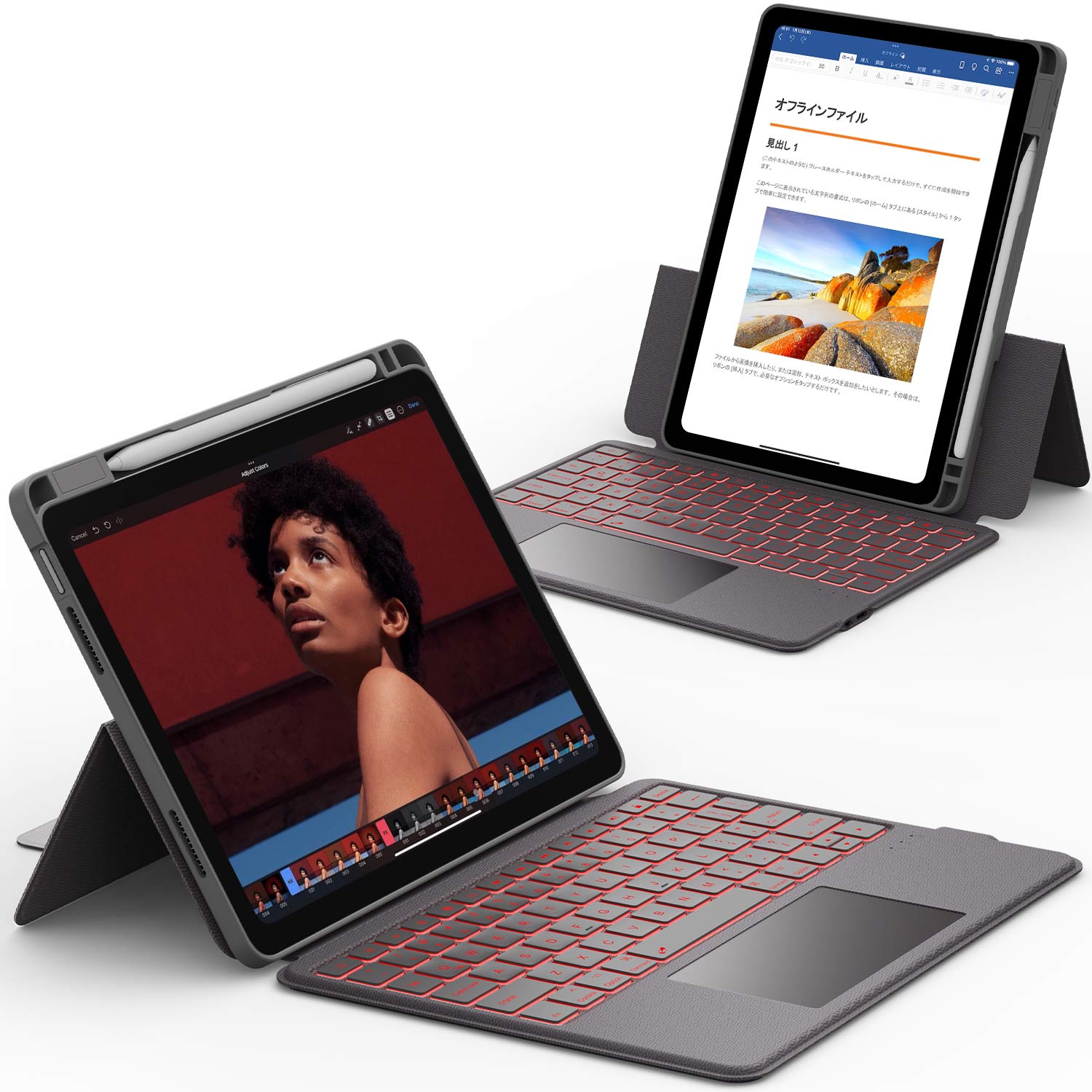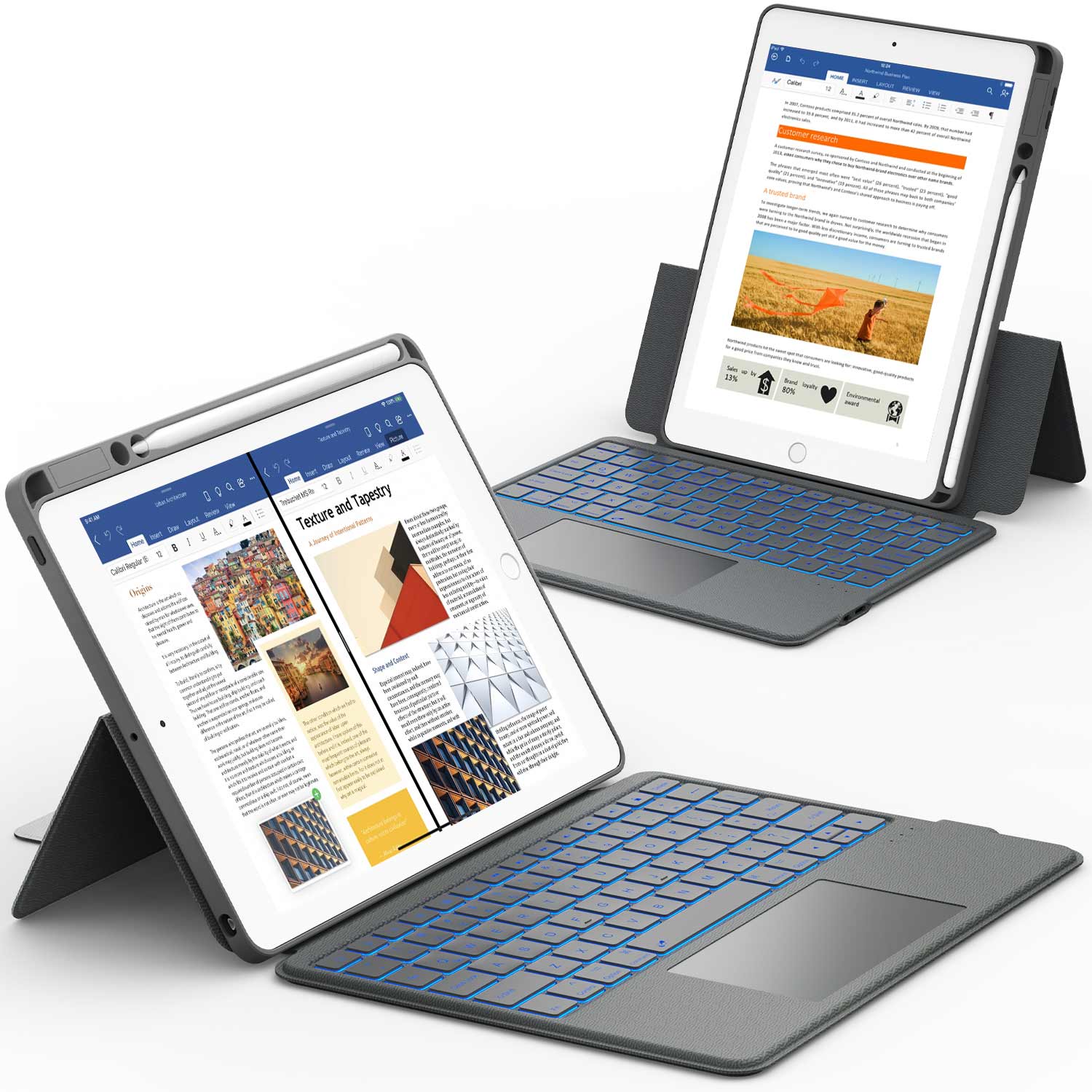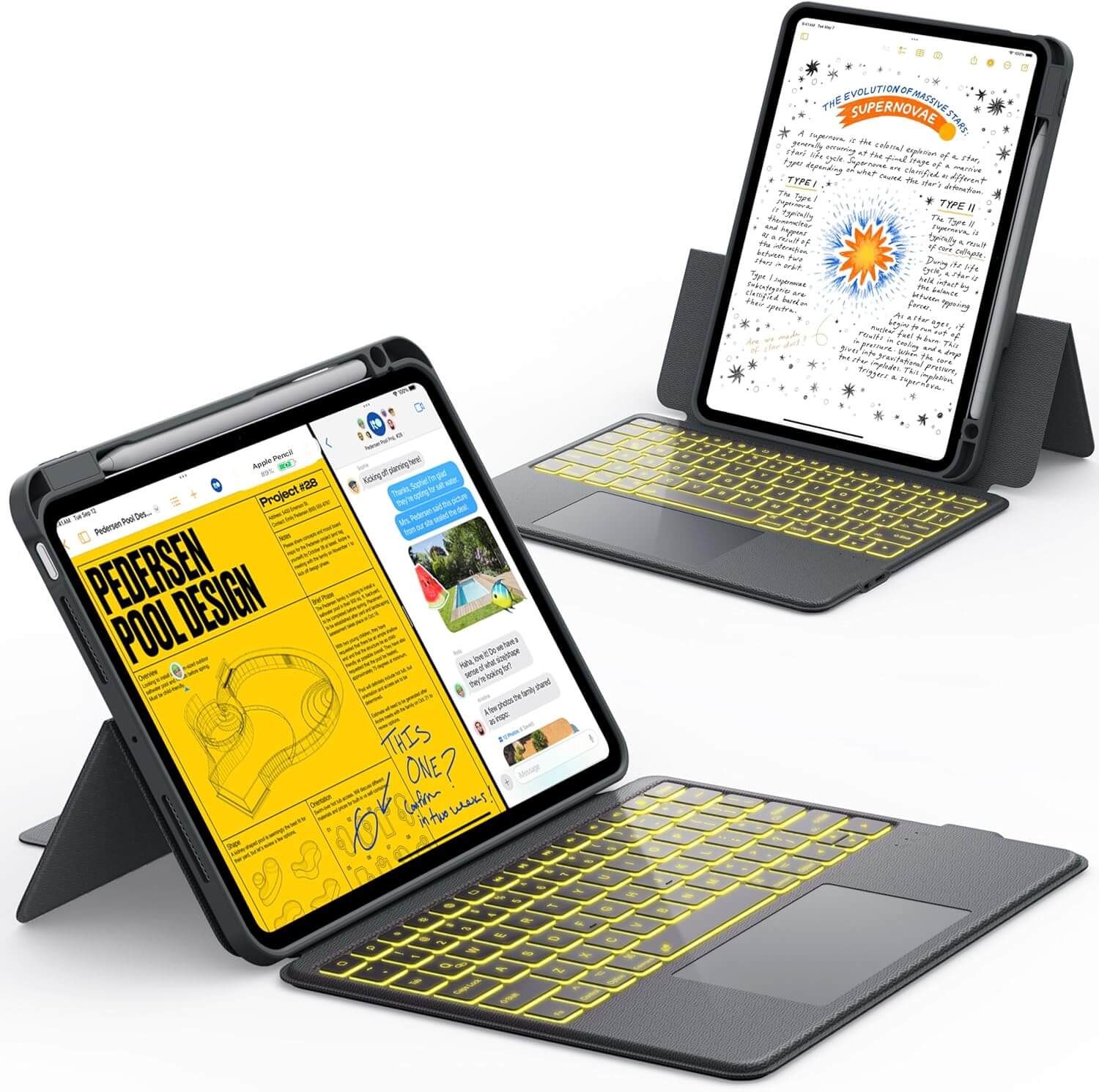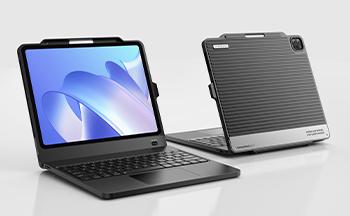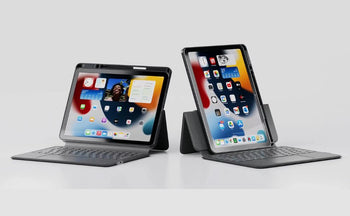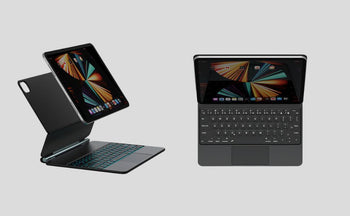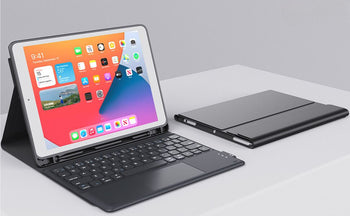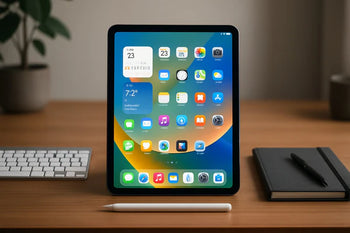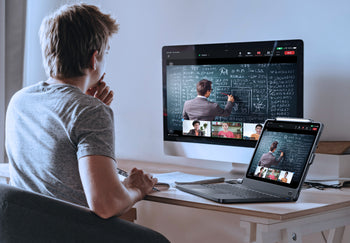
The debate between Bixby vs Siri is a common one for users deciding which voice assistant best fits their needs. Both offer hands-free convenience, smart features, and integration with their respective ecosystems, but they differ in functionality and user experience.
In this blog, we’ll compare Bixby and Siri across key areas like voice recognition, app integration, and customization. Whether you’re a Samsung fan or an Apple enthusiast, understanding these differences will help you choose the right assistant for your daily tasks.
Protect your Samsung tablet during daily use with our durable and stylish Samsung Tablet Case collection.
Overview of Bixby and Siri
Samsung's Bixby and Apple's Siri take pretty different routes in the voice assistant world. Bixby showed up in 2017 with multi-modal controls, while Siri's been helping Apple fans since 2011 with simple voice commands.
What is Bixby?
Bixby is Samsung's answer to digital assistants, launching in March 2017. You can talk, type, or tap to interact with Bixby on Samsung devices.
Bixby Voice lets you use regular language to control your device. It keeps context in mind, so conversations can flow from one question to the next.
Bixby Vision taps into your camera to spot objects and translate text. Just point at a foreign sign, and Bixby will give you a translation right away.
Bixby Routines picks up on your habits and starts automating tasks for you. If you silence your phone every night, Bixby will eventually just do it for you.
The assistant goes deep with Samsung's interface. You can tweak almost any setting or app using just your voice.
What is Siri?
Siri is Apple's built-in assistant, first appearing in 2011 with the iPhone 4S. You can wake Siri by saying "Hey Siri" or pressing a button on your device.
Siri handles things like sending texts, setting reminders, or making calls. It's handy for quick, simple requests.
The assistant ties right into Apple services. Ask Siri to play your favorite song, get directions, or control smart home gear—all without touching your device.
Voice is the main way to use Siri, though you'll see some visual responses on your screen.
Siri works the same way on all Apple products. Whether you're on an iPhone, iPad, or Mac, you'll get a consistent experience.
Supported Devices and Platforms
Samsung Devices (Bixby)
- Galaxy smartphones and tablets
- Samsung smart TVs
- Samsung smart home appliances
- Galaxy Watch series
- Samsung refrigerators and washing machines
Apple Devices (Siri)
- iPhones and iPads
- Mac computers
- Apple Watch
- HomePod speakers
- Apple TV
Bixby sticks to Samsung products. You'll unlock the best features when you use several Samsung devices together.
Siri lives on nearly every Apple device, and your requests sync through iCloud.
Both assistants can control smart home stuff. Bixby uses SmartThings, while Siri works with HomeKit.
Device compatibility is a big deal. Bixby really only works with Samsung, and Siri needs Apple hardware.
Comparing Features and Performance

Each assistant has its sweet spot. Siri is better at understanding complex language, while Bixby digs deeper into device controls and context.
Voice Recognition and Accuracy
Siri stands out for recognizing voices across all sorts of accents and dialects. Apple's focus on natural language really pays off, even in noisy rooms.
Siri gets context and can handle follow-up questions, which makes conversations feel more natural.
Bixby's accuracy can depend on where you live and how you speak. It's best with native Korean, but other accents can trip it up.
Bixby makes up for this by remembering your past requests and using that info to tweak its answers.
Both assistants learn as you use them, but Siri usually nails consistency better, no matter how you speak.
Integration with Apps and Services
Siri plays nicely with Apple's ecosystem. You can control built-in apps like Music, Maps, and Reminders with just your voice. HomeKit support is baked in, too.
Third-party app support is still a bit limited, with most integrations focusing on Apple apps and a handful of partners.
Bixby opens up more with third-party apps through SmartThings. You can control TVs, appliances, and a ton of smart home gadgets.
Device-level automation is where Bixby shines. You can set up custom shortcuts that string together actions across apps and settings.
Samsung lets you get into the nitty-gritty. You can tweak UI settings, adjust preferences, and even control hardware through voice.
Customization and Personalization
Apple keeps Siri's customization pretty limited to keep things consistent. You can tweak a few settings, but you can't really change how Siri behaves.
Siri quietly learns what you like over time, adjusting music, routes, and app suggestions as you use it.
Bixby gives you way more ways to customize things with Bixby Routines. You can set up complex automations based on time, place, or device status.
Samsung lets you personalize Bixby deeply. You can change responses, set up custom commands, and fine-tune how it acts in different situations.
Both assistants let you set some preferences, but Bixby gives you much more control over your daily routines.
Keep your iPad Air safe and sleek with cases from our elegant iPad Air Folio Case collection.
Which Voice Assistant Should You Choose?
Your decision mostly comes down to what devices you use and how much you care about privacy. Bixby is the obvious pick for Samsung users, while Siri is a no-brainer for Apple fans.
Best for Samsung Users
Bixby is built for Samsung hardware—phones, tablets, TVs, you name it. It hooks into SmartThings for easy smart home control.
You can even use Bixby to manage Samsung appliances like washers and fridges. Handy if you're all-in on Samsung gear.
Why Bixby works well for Samsung fans:
- Deep Galaxy phone and app integration
- Controls Samsung appliances
- Quick Commands for shortcuts
- Runs best on Samsung hardware
Bixby gets context when you ask follow-up questions, which is nice for longer chats.
It doesn't support as many languages as Siri, but in the right region—especially Korea—it's pretty solid.
Best for Apple Users

Siri feels right at home in the Apple world—iPhones, iPads, Macs, HomePods, all of it. Handoffs between devices are smooth.
Siri's strengths with Apple services:
- Apple Music for music controls
- HomeKit for smart home stuff
- Apple Maps for directions
- iMessage and FaceTime for communication
Siri supports 21 languages, while Bixby only handles 8. That's a big plus if you speak more than one language or move around a lot.
It handles accents well and usually gets your commands right, even in busy places.
Apple's tight grip on hardware and software makes for a smoother, more reliable experience. Commands just work, and they're quick.
Considerations for Privacy and Security
Apple pushes privacy harder than Samsung does. Siri uses random IDs instead of tying your data to your Apple account.
Privacy features in both assistants:
|
Feature |
Siri |
Bixby |
|
Data encryption |
Yes |
Yes |
|
Delete voice data |
Anytime |
With permission |
|
Random user ID |
Yes |
No |
|
Data sharing limits |
Strong |
Moderate |
You can turn off wake words like "Hey Siri" or "Hi Bixby" to avoid accidental recordings. Both let you review and delete your voice data if you want.
Siri doesn't link your voice data with other Apple services by default, which helps keep things private.
Samsung stores Bixby data on its servers, but it asks before saving voice recordings. You get to decide what gets collected.
Keep your assistant and smart devices updated for the latest security patches. Strong passwords help, too.
Enhance your iPad Pro experience with our slim and functional iPad Pro Smart Cover collection.
Conclusion: Bixby vs Siri
Choosing between Bixby vs Siri ultimately comes down to the devices you use and the features you value most. Siri offers broader app support and faster responses, making it ideal for Apple users. Meanwhile, Bixby shines within the Samsung ecosystem, providing deeper device control and customization.
Both assistants continue to improve, so picking the right one depends on your preferences and workflow. Want to learn more about how Samsung tablets compare to iPads? Check out our detailed guide on the 5 Key Differences: Samsung Tablet vs iPad.
Frequently Asked Questions: Bixby vs Siri
Who is better: Bixby or Siri?
It depends on your devices and what you prioritize. Siri works best with Apple products and generally supports more languages and third-party apps. Bixby is ideal for Samsung users, offering deeper device control and more personalization options within the Samsung ecosystem.
Why is Bixby not popular?
Bixby's popularity is limited primarily because it only works well on Samsung devices, which restricts its overall reach. Many Samsung users often prefer Google Assistant, which comes pre-installed on Android phones and has broader support across various devices and services. Additionally, Samsung hasn't promoted Bixby as extensively as Apple has with Siri, or Google has with Google Assistant.
Can you talk to Bixby like Siri?
Yes, both Bixby and Siri are designed to understand natural language and can handle follow-up questions. They are capable of remembering context within a conversation, leading to smoother interactions. You can speak to either assistant naturally without needing to use specific, rigid commands.
How intelligent is Bixby?
Bixby excels at learning your habits and providing extensive voice control over nearly all Samsung device settings. It is particularly strong with device-specific tasks and automating routines within the Samsung ecosystem. However, it is not as strong with general knowledge questions or broader web searches compared to Siri or Google Assistant.
